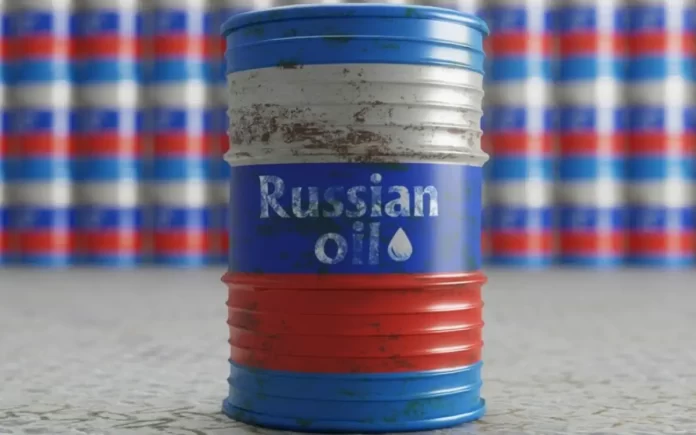Brussels: A European think-tank revealed that over one-third of India’s oil product exports to the G7-led coalition nations were sourced from Russian crude, shedding light on the complex dynamics of sanctions and trade policies. While the coalition aimed to curb Moscow’s revenue by imposing price caps on crude oil, a loose policy on refined products allowed third countries to utilize Russian oil and export products legally.
The Group of Seven (G7), the European Union, and Australia initiated a crude price cap of USD 60 per barrel in December 2022, followed by caps on products like diesel. This move aimed to punish Russia for its 2022 invasion of Ukraine while preventing a surge in global oil prices.
According to the Finland-based Centre for Research on Energy and Clean Air (CREA), since the inception of the oil price cap, over one-third of India’s exports of oil products to sanctioned countries amounted to EUR 6.16 billion (USD 6.65 billion), with a significant portion originating from the Jamnagar refinery operated by Reliance Industries Ltd in Gujarat.
The Jamnagar refinery alone exported EUR 5.2 billion worth of oil products derived from Russian crude to the price cap coalition. Meanwhile, India imported EUR 3.04 billion worth of Russian crude to produce these products for sanctioned nations, highlighting the intricate nature of global oil trade.
Moreover, the report indicated that Turkey, China, and India emerged as major buyers of Russian crude, despite some western nations avoiding direct purchases. Turkey’s Aliaga port, home to major refineries, stood as the second-highest exporter of oil products made from Russian crude to the price cap coalition countries.
CREA’s analysis also revealed that the price cap coalition countries’ imports of oil products made from Russian crude totaled EUR 8.5 billion (USD 9.18 billion) between December 2022 and December 2023, equivalent to a significant portion of the EU’s annual commitment to aid Ukraine.
Despite sanctions, the complex web of global oil trade persists, with various countries navigating policies and economic interests.



